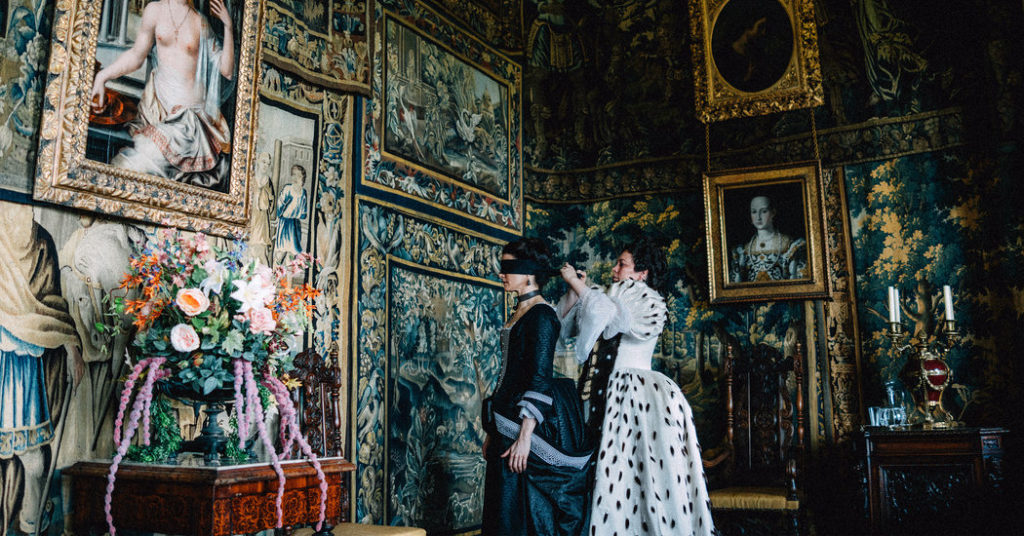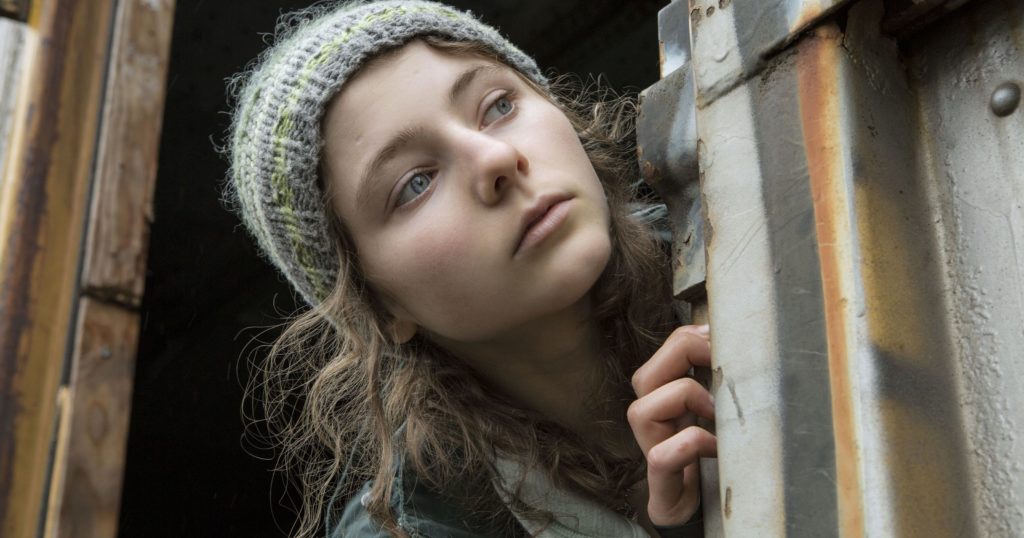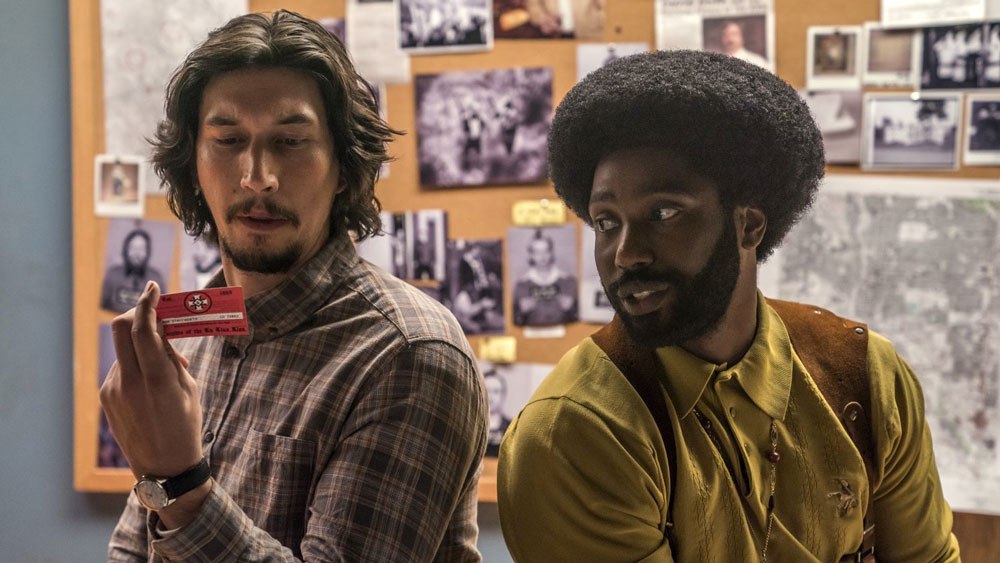2018: A Year for Action Big and Small

2018 was an outstanding year in film, but I have to start by saying that it was also an outstanding for me as a film viewer. I saw more new films this year than ever before: 101, to be exact. I prioritized seeing movies, and the effort paid off in a big way. I saw so many extraordinary films – spectacles and small stories, fantastical tales and poignant realism – it was a brutal exercise to try to choose a Top Ten. But I have. What strikes me as I reread my list is how many of these movies (regardless of how superficially different they are) are speaking straight to the social concerns of this moment in history. There’s nothing wrong with escapism in movies, but don’t let anyone tell you that movies are just escapism. Many of the most powerful, important conversations in our culture are taking place onscreen at your local cineplex.
10. Mission: Impossible – Fallout

As I said, there’s nothing wrong with escapism once in a while and Mission: Impossible – Fallout was the best kind. This was perhaps the best action film I’ve ever seen, but the better testimonial is this: I don’t especially like action films. Nevertheless, this one blew my mind, held my attention fast, and left me both breathless and high on adrenaline as the credits rolled. The stunts are spectacular, the cast solid, the score pulsing the same excitement as the action onscreen. And Tom Cruise proves that he can both still pull off the stunts and poke a little fun at his advancing years. Also, no one runs like Tom Cruise. Mission: Impossible – Fallout may not be a socially important film, but it’s great movie and deserves acknowledgement.
9. Spider-Man: Into the Spider-Verse

I didn’t expect this to be my favorite Marvel Universe film of the year, and yet here it is, at #9 on my list. Spider-Man: Into the Spider-Verse is, in fact, the best Spider-Man movie yet. The animation is a visual feast, unlike anything I’ve seen before; the soundtrack is among the best of the year; and the film is brimming with humor. Above all, though, the central character of Miles Morales (voiced by Shameik Moore) is a very different Spider-Man than we’ve seen up to this point. He is awkward and gangly, but has his own resolute sense of self (maybe summed up best in his chronically untied shoes). There is anarchic, infectious joy all over Spider-Man: Into the Spider-Verse. It’s one of the few movies I chose to see twice just because it made me happy.
8. The Favourite

Director Yorgos Lanthimos’s The Favourite is a nasty piece of work, but an exquisitely crafted and very funny one. Set in the early 18th century court of Queen Anne (the last of the House of Stuart), The Favourite centers on the rivalry for the queen’s affections by two women – although affection is only a means to an end, with the real currency being power. Olivia Colman’s depiction of the isolated, needy, perpetually grieving queen is well matched by Rachel Weisz as her companion and Emma Stone as the shrewd new contender. Lavish costumes and baroque palace interiors can’t obscure the moral rot that surrounds the queen, and her title can’t hide the fact that she is more petulant child than capable ruler. If you find some relevance in that, you’re not alone.
7. Leave No Trace

Debra Granik helped launch Jennifer Lawrence to stardom by casting her as an adaptable and independent teenager girl in 2010’s Winter’s Bone. In a just world, the same would happen for Thomasin McKenzie who plays a similar role in Granik’s Leave No Trace. Tom (McKenzie) has grown up in the forests outside Portland with her father, a traumatized war veteran. The two share a quiet comfort and intimacy with each other, and Will (Ben Foster) is a devoted and conscientious father. But of course, it can’t last forever. Leave No Trace follows Will and Tom as they attempt to adjust to living “normal” lives while preserving their bond. Will’s past trauma and Tom’s growing maturity both present challenges, but the film is never melodramatic. Even the most intense moments are handled with a gentle solemnity. Leave No Trace is a quiet film with two beautiful central performances.
6. The Rider

Chloé Zhao makes extraordinary, risky films. Like her previous film, Songs My Brothers Taught Me, The Rider is set on the Pine Ridge Indian Reservation in South Dakota and uses non-professional actors in a blend of fiction and documentary filmmaking (if you don’t think using non-professional actors is risky, watch Clint Eastwood attempt the same thing in 15:17 to Paris). The Rider tells the story of an injured rodeo cowboy trying to come to terms with life without the thing he loves the most – riding. Played by real-life Lakota Brady Jandreau, who suffered a head injury just as his fictional version does, the central character is a study in muted loss and anger. Expanding to look at the lives of Brady’s family and friends, The Rider explores masculinity, poverty, addiction, but above all the precarious balance between hopelessness and a realistic embrace of the possible. With gorgeous, golden-hued shots of the reservation and the horses that Brady loves, The Rider is a heartbreaking journey.
5. Won’t You Be My Neighbor?

Won’t You By My Neighbor? isn’t just a great documentary, it’s the documentary we need right now. It succeeds in giving the life story of children’s television legend Mr. Rogers, but operates as far more than a simple biography. Through his own words and interviews with Fred Rogers’ friends and family members a portrait develops of a man who fought, sometimes against deep discouragement, to live out the virtues he believed in: to model empathy and kindness, to treat every human being as precious and beloved – because Mr. Rogers believed that we are precious and beloved. Embodying his Christian call to ministry in his most unique way, Fred Rogers left a pattern for manhood, and more broadly, for humanness, that is desperately needed in our day. Beyond that, Won’t You Be My Neighbor? is a beautiful crafted, tenderhearted doc. It may have elicited more audience tears than any other film this year, but it left viewers feeling closer to healing by the documentary’s end.
4. If Beale Street Could Talk

Barry Jenkins followed his Oscar winning Moonlight with an adaptation of a James Baldwin novel that is both love story, and commentary on how the forces of an unjust society work to crush that love. If Beale Street Could Talk derives its power from Baldwin’s prose and Jenkin’s delicate touch as a director. Color, music, camera movement – Jenkins weaves together the elements of his film into something extraordinarily beautiful. I’m not sure that there is a more gifted director working today. The cast rises to the material, and Regina King, in particular, gives a performance in which one restrained facial expression can contain multitudes.
3. Roma

A personal project from writer and director Alfonso Cuarón, Roma follows a year in the life of a young domestic worker serving an upper middle class Mexican family. Cuarón created the film as a tribute to the women who helped raise him in 70s era Mexico, and it is a supremely loving depiction. Cleo (Yalitza Aparicio, wonderful in her first role) is a soft spoken indigenous woman, sweetly affectionate with the four children she cares for and quietly observant of the turmoil in their parents marriage. Outside of work, with her friend and co-worker Adela, we see a more vibrant, bolder Cleo. Her outside life and her work life clash, though, when she finds herself pregnant and without a partner. Roma is both an emotionally moving film about Cleo’s place in the family she serves (class, gender, and race all play a part) and a stunning cinematic depiction of the Mexico of Cuarón’s childhood. His slow panning shots are so packed with details that multiple viewings are required to appreciate the richness and detail. Roma is a masterwork.
2. BlacKkKlansman

Oh, this is such a good film, it almost pains me not to give it the #1 spot. Spike Lee has definitely still got it, and BlackKklansman’s brash, “go big or go home” spirit does the miraculous – making a film that is both deliriously funny and horrifying. Inspired by real events, BlackKklansman has moments when it slows down to exult in beauty and embrace joy as an act of resistance, decisions that seem all the more important since the topic of the film is the grim ugliness of violent white supremacy. Some of the connections the film draws between past and present may seem too on the nose, but given the events of the last few years perhaps America needs the hammer and not subtlety when it comes to our ongoing curse of racism. BlackKklansman is centered by great performances from John David Washington and Adam Driver playing the two (uneasy) sides of Ron Stallworth.
1. First Reformed

I can’t stop thinking about First Reformed. Paul Schrader’s somber film about a pastor (and a planet) in crisis touches on my deepest anxieties about the future and about the complicity of my own faith community in hastening our demise. Ethan Hawke gives one of the finest performances by anyone in any film this year as Ernst Toller, a depressive but earnest pastor, sinking deeper into anger and the bottle after a dramatic encounter with a congregant who is an environmental activist. Rev. Toller disintegrates emotionally not because he loses his faith, but because he finds it incompatible with the religious status quo. The story is grim, the film sometimes descends into the surreal, but grace is still present in the form of Mary, a pregnant church member who befriends Rev. Toller. First Reformed is the very definition of an important film, speaking to issues that we simply can’t continue to ignore.
Honorable Mentions:
The rest of my top 20, all of them great films in their own right:
11. Annihilation
12. Eighth Grade
13. Sorry to Bother You
14. Hereditary
15. Minding the Gap
16. A Star Is Born
17. 22 July
18. Support the Girls
19. Avengers: Infinity War
20. Black Panther

